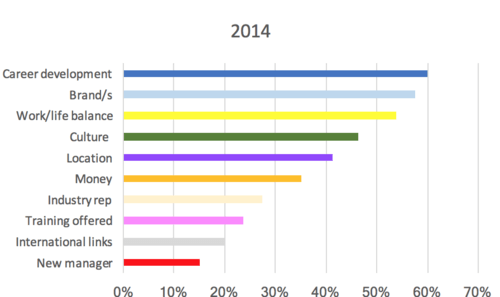Why is work culture important to iknowho?
In the previous blogs, we have reviewed what culture means, how to measure it and the importance for the employer. As the founding sponsors of the AdNews People and Culture Award, here’s why culture is important to iknowho, our clients, and our candidates.
The term culture is thrown around on a regular basis, it’s what we as consultants use to help create the best matches - great talent with ideal working environments. It’s really important for us to know and understand the existing culture our clients foster as well as what our candidates are looking for.
Companies that go above and beyond should be acknowledged and that’s why we worked with AdNews to develop a dedicated award in 2016. This award is a proof of concept, a good work culture is built over time not overnight, these award submissions allow companies to highlight what they do and what makes them stand out. Our last year’s finalists mentioned that this award inspired them to keep improving and being more innovative.
So why is culture important to us?
Iknowho has been conducting a candidate survey since 2014, asking the question ‘When choosing a new employer, what is most important to you?’. In 2014 the priority factor was career development, then brands, work/life balance then culture. In 2017, culture became the priority, by a long shot followed by work/life balance.


These changes are not surprising with different generations bringing in new experiences and expectations. Candidates are asking more questions around company culture, how the company benefits them; what value the company can add to their career growth and lives, the relationship their managers, work benefits and what’s going on with the business. With the growth of work-life integration, candidates are more keen to understand the expectations of them before they start a new role.
In return, clients are listening to their staff and working with them. One of the finalists; The Works Sydney offer a Family First Initiative, this enterprise provides return to work bonuses to assist with childcare cost, paid parental leave and flexible working hours. Those without children are offered experiences revolving around spending time with family and friends, therefore not leaving anyone out.
As you can see from the Q&A when our Director, Dene Gambotto sat down with AdNews Editor Rosie Baker, when it comes to searching for a new role, culture is at the forefront of our talents mind and ours as well!
Thank you to everyone that participated and congratulations to the 2017 finalists; Adrenalin, REA Group, The Royals, The Works Sydney. We are looking forward to seeing everyone at the event on March 15th. Stay tuned to find out the winner.










